After the better part of a decade working at the forefront of international education in China, Caroline Lincoln , former Deputy Director in the central academic team, has recently returned to her home in the UK.
Here Caroline shares her thoughts on the great changes that have taken place in China over this time, as well as her insights into how students and teachers can best negotiate the challenge and opportunity of an evolving education landscape.
1. What brought about your move to China?
I first came to China on a teacher visit as part of an exchange program in 2013. I loved it. When I got back I applied for a teacher position.

Caroline’s long fascination with China only deepened from the moment she set foot in the Middle Kingdom.
I had actually transitioned into education at a mature age, so I had a lot of management on top my 10 years experience of teaching IGCSE and A-level in the UK. The person interviewing me saw all this on my CV and said, “Would you be interested in an AQM (Academic Quality Manager) position?” I said yes.
2. Where was the head office back then?
The head office in Shanghai was in a much smaller building back then. My team was based in Nanjing. At that point the Dipont High Schools program was starting to grow quickly, and so Nanjing was a handy central location for the AQMs to travel from.
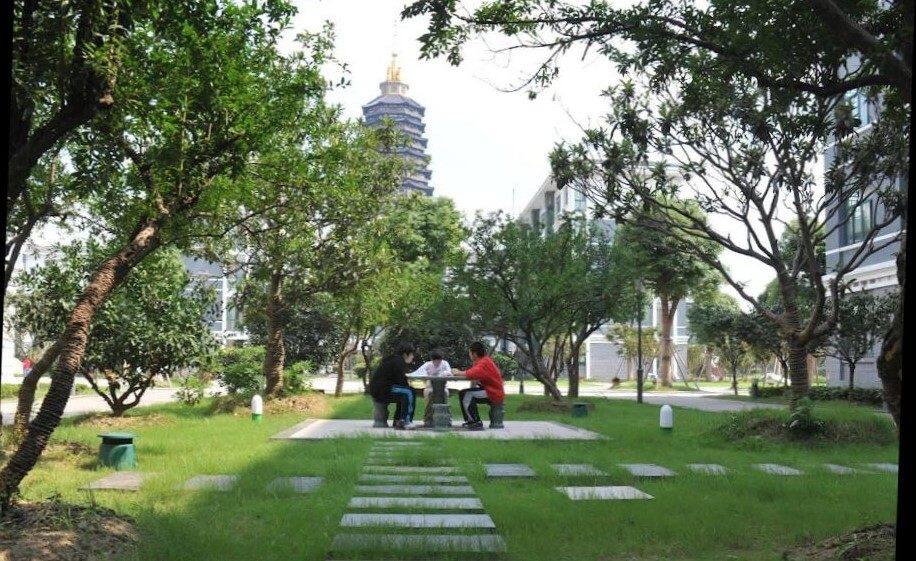
Covering classes at schools like Changzhou Senior High School gave Caroliine a chance to quickly learn about Chinese students and Dipont’s intrenational curriculum programmes.
In that first year I also covered some English courses at Nanjing Foreign Languages School, and then also taught in the AP program at Changzhou Senior High School. That was a great way to learn exactly what the programs are about, by just going in and getting stuck into teaching them.
3. How has your life in China changed over the years?
There are a lot more conveniences now than there were in 2013. Things like electronic payments, and DiDis. We were often coming out of schools at 5 PM on a winter’s evening, and you just had to try and hail a taxi down on the road. Or if we were travelling to visit a school we would have to carry a card around with the address on it. Life has gotten so much easier.
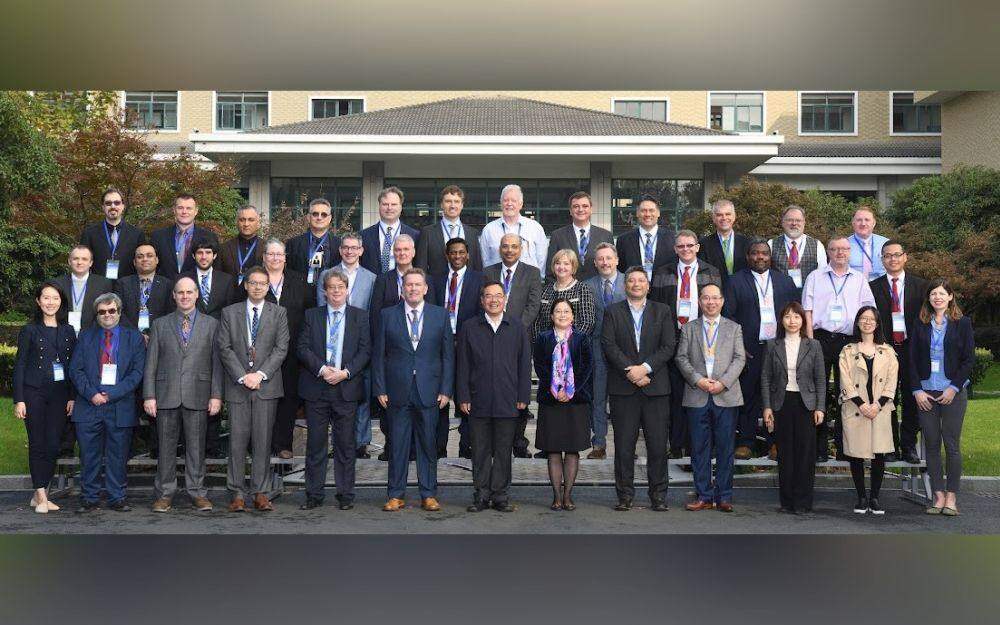
The 2020 Center Principal Conference in Hanghzou brought together academic leaders from right across the Dipont Education network.
4. What’s one thing you will miss about living in China?
The big thing for me is the safety. As a lone female here I’ve never felt uncomfortable or unsafe in any way at all. I’ll also miss the 24-hour lifestyle. You can get a haircut, or a manicure, or a massage, anytime, seven days a week. The city has a lot of energy about it.

In 2013 the train from Shanghai to Nanjing took more than 2 hours. In 2022 a bullet train can make the run in under an hour. Photo: east-ep-a91-4704256Copyright:www.quanjing.com
One time I was travelling to Shanghai from Nanjing, and I had a really nice camera with me. When I got back to Nanjing I realized I’d lost this great camera.
It must have been while putting my bags through the scanner, I thought. So I called my colleague in Shanghai and she went straight to the station. The camera was there. They put it on the next train and I picked it up the next day. I just thought, where would that happen anywhere else in the world?
5. What has been an achievement that you are proud of in your time with Dipont?
It hasn’t been just me, but I’m proud of how we have changed the way that teacher evaluations are seen and used.
When I first started the idea of class observations was that we were like school inspectors, and the teachers might have dreaded the experience. Now I think they are seen more as a part of ongoing professional development.
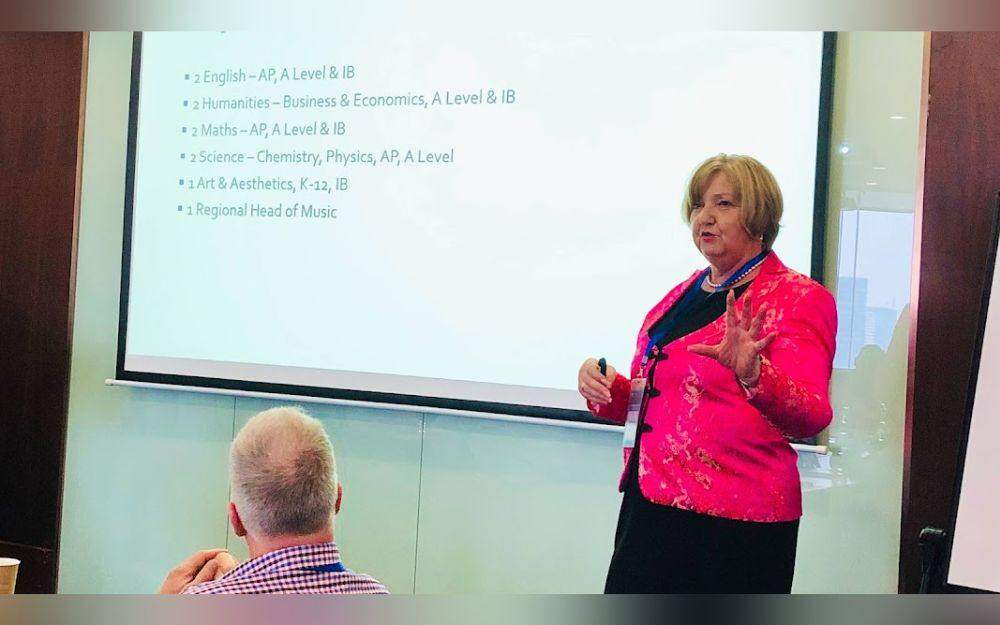
Helping teachers to experience real benefits and professional agency during the class observation process was an achievement that Caroline felt proud to be a part of.
This past year of having more online lessons has evolved this experience even further. As mentors we can go through the lesson plan and look at the video, and the teacher has that time as well.
This makes for a far more focused and fruitful discussion, because the teachers have already picked up elements that they can see they want to improve on.
6. Over the past decade, there has been a shift in Chinese education towards more student centered learning. How have you seen students adapting to this change?
I think the students in general are much more confident and more willing to voice their opinions. Students here are becoming much more comfortable with the expectation that the teacher will expect them all to participate, and that there’s no wrong answer.
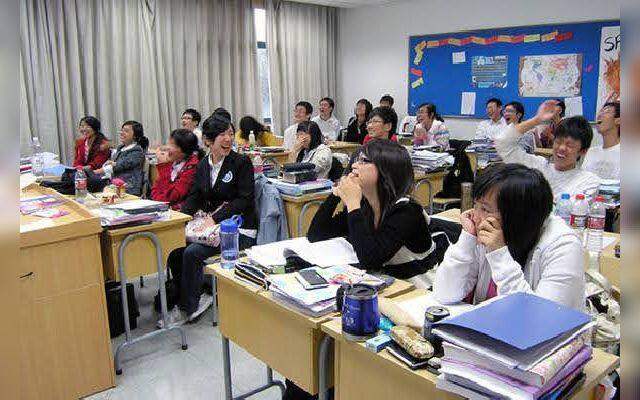
Students in Dipont High School Programmes are among the best and brightest in the nation. As Caroline says, they are a joy to work with.
Becoming more comfortable with ambiguity has been a common thread through all of these changes. It really has been an exciting time to work in education in China.
7. What advice would you give to new teachers starting out in Dipont’s High School Program?
First and foremost, the students in our programmes are really smart. We always advise new teachers to start with a very traditional approach. Go in with confidence, and show the students that you know your subject. When I was training to be a teacher there was a saying, ‘Don’t smile until Christmas’ which basically means earn the students’ respect first.
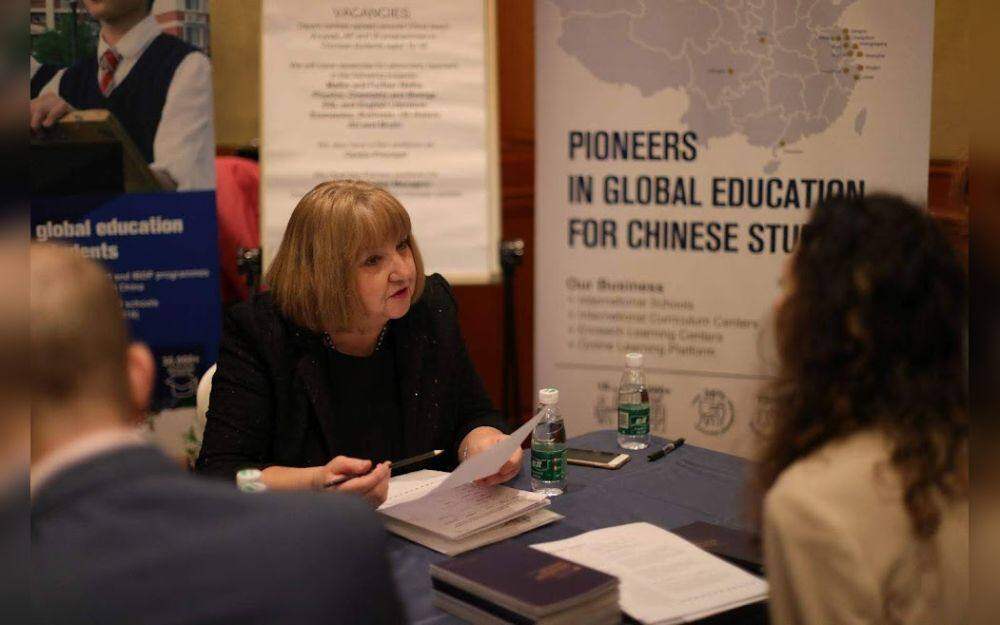
As well as providing academic oversight, teacher guidance and support, Caroline was a regular attendee at nationwide job fairs, representing Dipont.
Students in China expect a lot from their teachers, but once you have built that rapport the rewards are amazing. Be confident, plan and prepare your lessons well and anticipate the questions which might come up.
8. What would you say to encourage a professional educator like yourself to leave their home country and come to work with Dipont Education in China?
China is just a great place to be. It has fascinating culture, background and history. Geographically it’s also amazing. If you take the bullet train from the south up to Beijing the topography is completely different. The change is spectacular.
The students in our high school programmes are amazing. They are very motivated and have a really strong work ethic. They’re fun to be with. Teaching in the classroom here is just a joy.

Caroline’s farewell afternoon tea was a chance for colleagues to express their gratitude and best wishes, sad to see her go but glad for the many years of working with her.
For teachers coming in, Dipont is a good company to work for. It has a good reputation in China. It has been going for a long time, and it is secure. There are also a lot of opportunities for career development and internal promotion. I’ve worked with many talented and hardworking teachers who have risen through the ranks to take on management positions in Dipont. I think it’s a company that really believes in its people.

